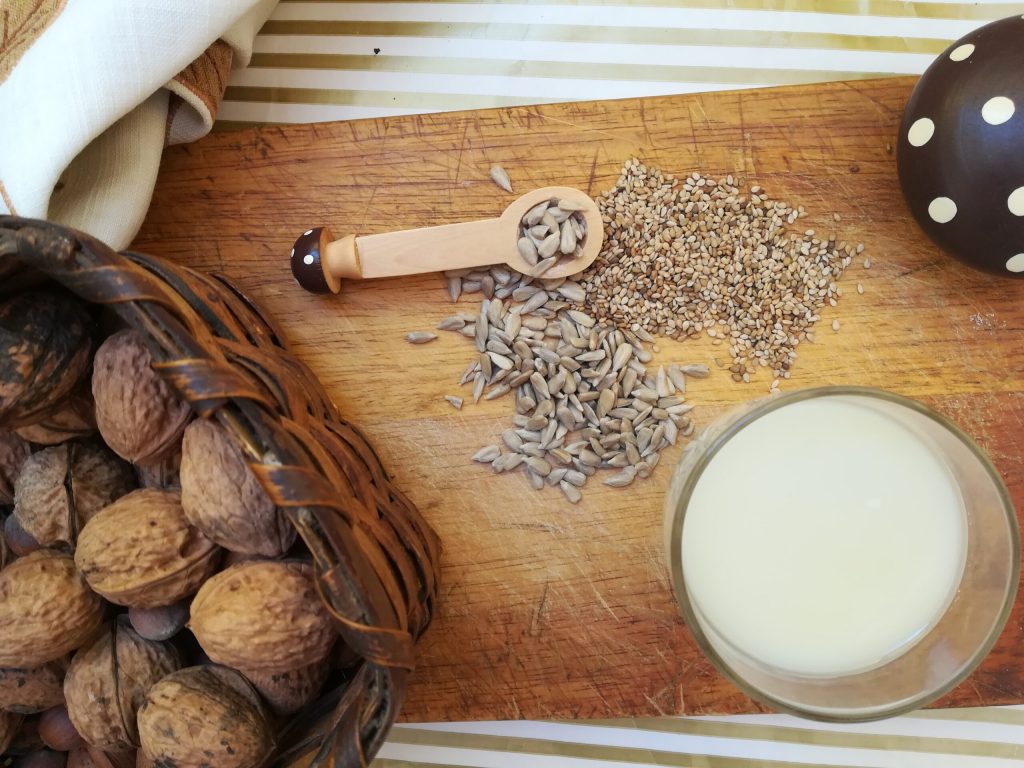
Would you like to know which are top 7 protein rich plant milks?
Let’s see!
Homemade plant milks are a great source of protein, but do we truly know which one is the highest in protein? I wanted to clear things up so I crafted this short article in order to show you all. It’s similar to the post where we told you how to boost the milks’ calcium content, so we also added a small bit on how to increase the protein content of the milks at the end of this one.
Talking about them milks, some of them are known indeed for their higher protein content, such as soy and almond milk. The others might surprise you!
For example,
did you know that all sunflower seeds, hemp and peanuts have more protein per gram than almonds do?
And even sesame seeds have the same amount of protein!
We believe it’s important to know these nutritional values, since they will allow you to pick a milk which suits your needs, not needing to depend on what’s trendy at the moment! That’s great since not everyone enjoys soy, and almonds can be pretty expensive. See how it’s helpful to know their protein content in order to choose?
Here you can find the amounts per 100 grams of food:
- White soy 35 gr
- Sunflower seeds 28 gr
- Peanuts 25 gr
- Hemp 25 gr
- Pistachios 21 gr
- Almonds 21gr
- Sesame 20 gr
Pay attention, though; not every single gram of protein goes straight to the milk. Some studies carried out with tigernut horchata shows that around 40% of the tigernut pulp stays in the pulp. Even after doing some calculations assuming that only 60% of the protein goes to the milk, we obtain pretty good numbers.
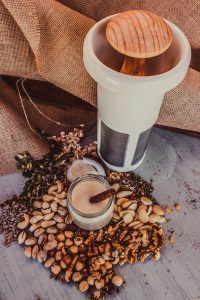 Plant milks ranked by protein quantity:
Plant milks ranked by protein quantity:
- Soy milk 21 gr
- Sunflower seed milk 16,8 gr
- Peanut milk 15 gr
- Hemp milk 15 gr
- Pistachio milk 12,6 gr
- Almond milk 12,6 gr
- Sesame milk 12 gr
These values are great enough, but if you need to go the extra mile and add even more protein, we have some tricks which are easy to use when you have a Vegan Milker:
- You can use double the amount of seeds per litre of water, ie: 150 or 200 grams instead of 100 grams. This will also make the milk more palatable!
- There’s also the option to add a handful of these more protein rich seeds and nuts to milks which are lower in protein otherwise, such as milks made from grains. This will also make them tastier!
- If you enjoy smoothies or shakes, you can use these milks as a base, combined with some fruit. It’s such a nutritious idea and a great way to get some extra plant protein. Here’s a great article by Conasi with ideas on how to boost the protein content of your smoothies or shakes using plant milks.
- Last but not least, you can also add some condiments such as spirulina to your plant milks. The flavour is great, but it can be pretty pricey to use every day.
We hope this article can help you when it comes to choosing a higher protein plant milk or boosting any milk’s protein content (and tastiness!)
Cheers!
Other interesting articles:

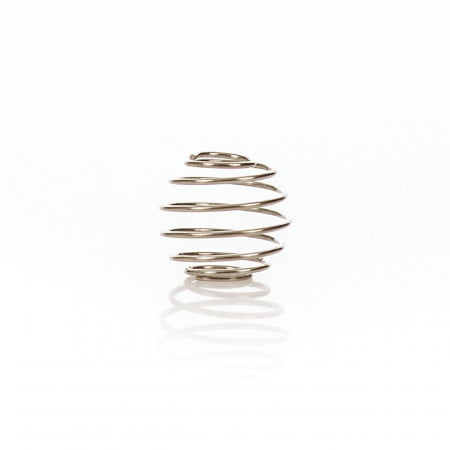

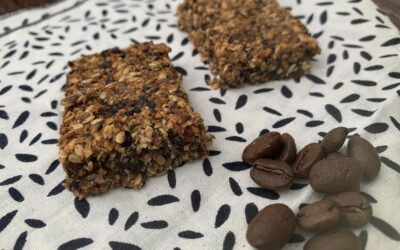
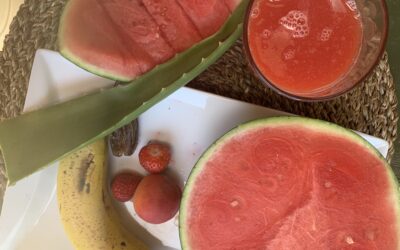
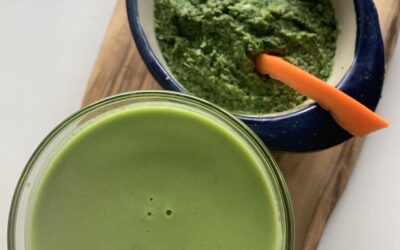
What, exactly, is calculated in the overview “Plant milks ranked by protein quantity:”?
If I take 100 grs of soy beans and add 0,9 ltr water to make soy milk, The soy is 10 % of the total amount (in grammes). Even if all soy protein gets in the milk I can only have 3.5 gr protein in 100 gr. milk, making 3.5%. Hope to learn what is calculated, then….
Hi Jip,
what we have done has been a very simple calculation as an approximation. The criterion we have used to make the ranking of the milk with more protein is the amount of protein that the seeds have. The seed that has the most protein will be the one that gives us the milk with the most protein.
Another calculation is how much protein from that seed passes into the milk. I have taken as a criterion a scientific study that was made with tiger nut milk, to see how much nutrients of the seed pass to the milk. This study tells us that 60% of the seed protein is transferred to the milk. With this data I have calculated the percentages of protein in the milk.
I take soybeans as an example. 100g of white soybeans contain 35 g of protein. 1 liter of soy milk is made with 100g of seeds, but only 60% of the protein is transferred to the milk.
So 1 liter of soy milk contains 21 g of soy protein.
If I am wrong about anything, please let me know. Thanks for asking.